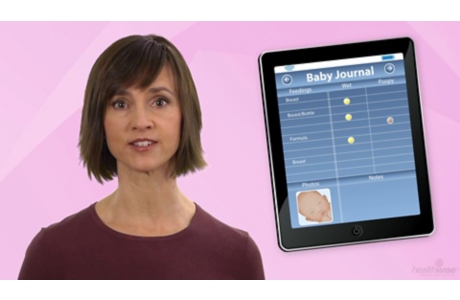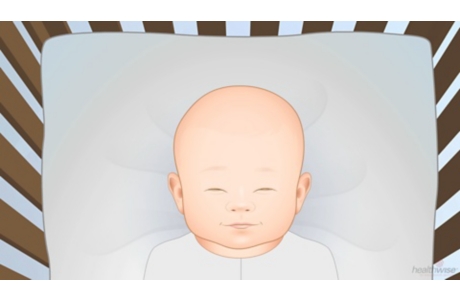Overview

Experts recommend that newborns be fed on demand. This means that you breastfeed or bottle-feed your infant whenever they show signs of hunger, rather than setting a strict schedule. Newborns follow their feelings of hunger. They eat when they are hungry and stop eating when they are full.
- In the first few days after birth, you may have to wake a sleepy baby to feed.
- During the first 2 weeks, babies breastfeed at least 8 times in a 24-hour period. Feedings may last only a few minutes. Over time, they'll get longer and may happen less often.
- By 2 months, most babies have a set feeding routine. But your baby's routine may change at times, such as during growth spurts when your baby may be hungry more often.
- At around 3 months of age, your baby may feed less often. That's because your baby is able to drink more milk at one time.
How do you know your baby has had enough to eat?
Babies give cues during feeding that indicate how hungry they are. Pay attention to these cues to help determine when your baby has had enough to eat.
- A baby who is hungry will latch on to the breast or bottle and suck continuously.
- A baby who is getting full during a feeding will take longer pauses between sucking.
- A baby who is full will turn away from the breast or bottle and not want to suck.
The amount of food each baby needs varies. Young babies usually do not take more breast milk or formula than they need.
Related Information
Credits
Current as of: October 24, 2024
Author: Ignite Healthwise, LLC Staff
Clinical Review Board
All Ignite Healthwise, LLC education is reviewed by a team that includes physicians, nurses, advanced practitioners, registered dieticians, and other healthcare professionals.
Current as of: October 24, 2024
Author: Ignite Healthwise, LLC Staff
Clinical Review Board
All Ignite Healthwise, LLC education is reviewed by a team that includes physicians, nurses, advanced practitioners, registered dieticians, and other healthcare professionals.






